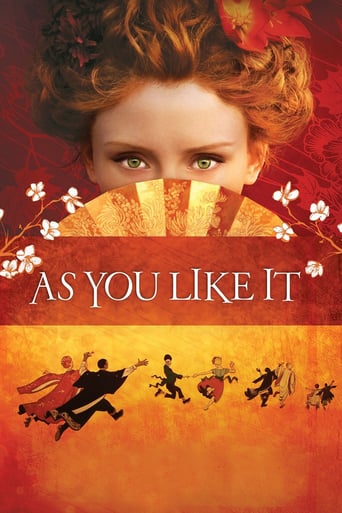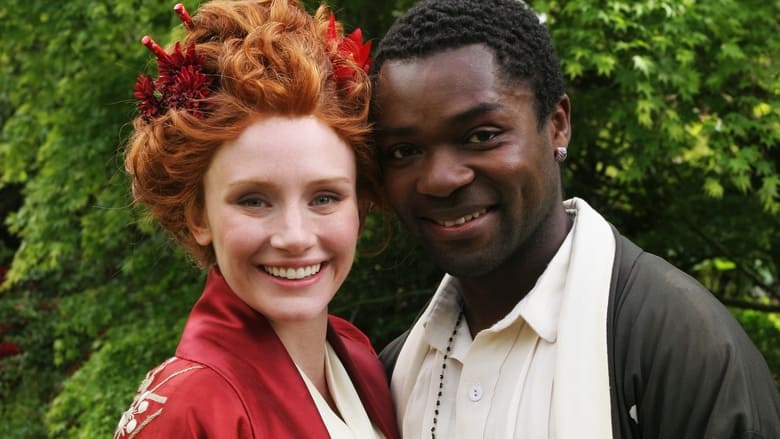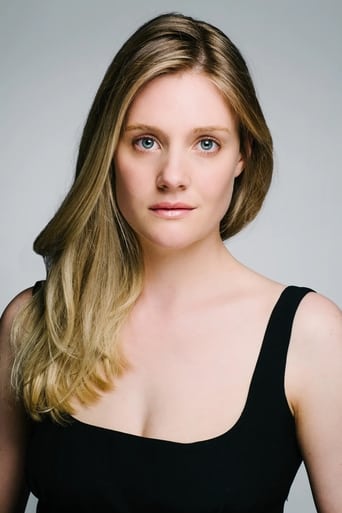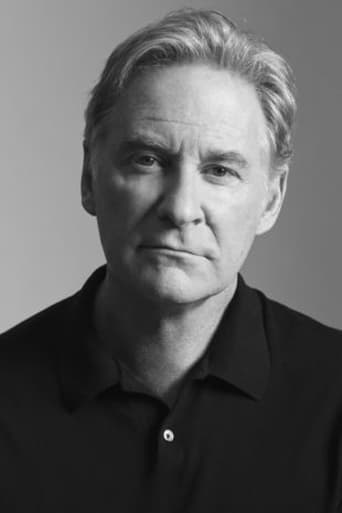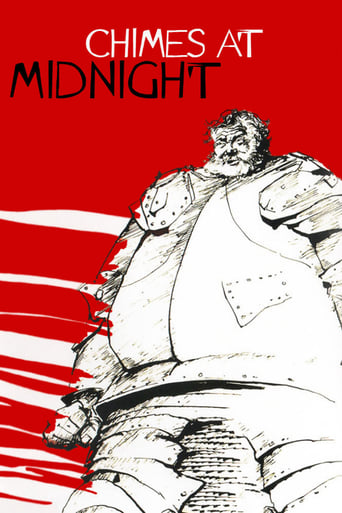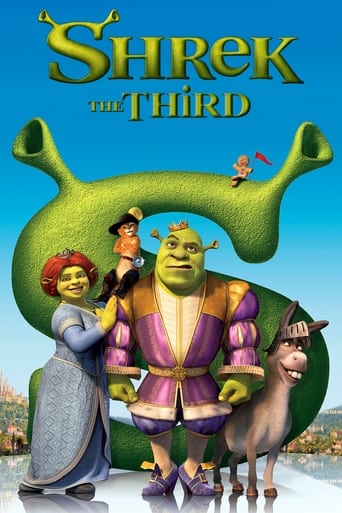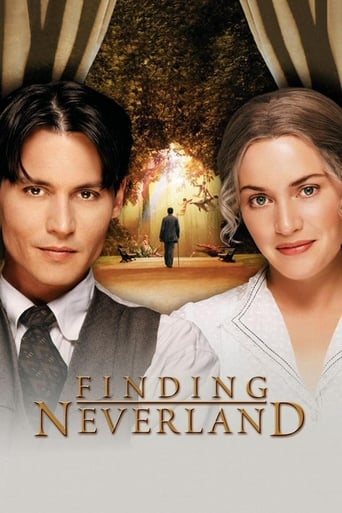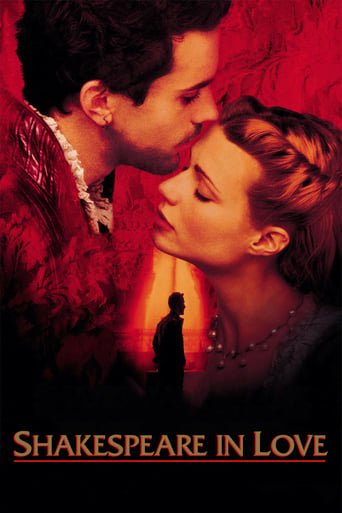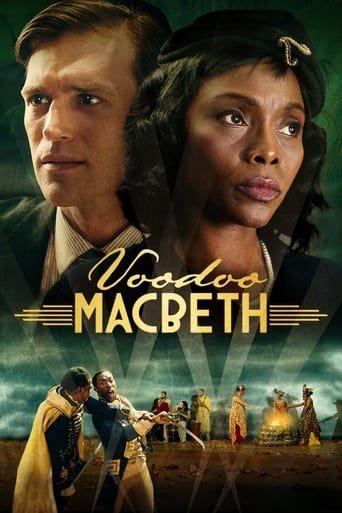As You Like It (2007)
Witty, playful and utterly magical, the story is a compelling romantic adventure in which Rosalind and Orlando's celebrated courtship is played out against a backdrop of political rivalry, banishment and exile in the Forest of Arden - set in 19th-century Japan.
Watch Trailer
Cast


Similar titles
Reviews
Very very predictable, including the post credit scene !!!
Slow pace in the most part of the movie.
As Good As It Gets
Blistering performances.
On the whole, I agree with the many reviewers before me who praise Kenneth Branagh in general and "As You Like It" in specific. So, I don't have to reiterate their comments here. I am writing to rebut the review by teacher_tom516 who completely misunderstands the movie, the play and the term "suspension of disbelief." Starting with the last, Samuel Taylor Coleridge called it "the willful suspension of disbelief," the tacit agreement made by the audience to leave reality at the door of the theater and accept the production's conceit as a temporary new reality. All theater, with the exception of the mercifully brief 19th century flirtation with "Realism/Naturalism", recognizes that it is an illusion to try to present "reality" on stage. Shakespeare certainly knew that and even tells his audience this in several of his plays (Henry V, Hamlet, The Tempest, A Midsummer Night's Dream, etc etc). His comedies are allegorical -- more subtly, so are his tragedies and even histories. His audiences accepted the premise without caviling over clocks striking in "Julius Caesar" and wild animals from different continents nonchalantly coexist. Shakespeare's Forest of Arden wasn't named for the Belgian Ardennes but taken from Lodge's romance "Rosalynde," from which Shakespeare cribbed his plot and characters. It is a magical place not found on maps -- it is the "Bitter Wood" of Medieval legend, the place where humans must face themselves, with or without Yoda. Arden was also Shakespeare's mother's family name. The writer plays the name game with the characters, seemingly unaware that Shakespeare's names are often chosen for their metaphoric associations. Falstaff is a "false staff" to Prince Hal. Why Orlando? Not because it's an Italian courtier's name, but because it's the Italian translation of Roland, the name of one of two legendary brothers-in-arms in the reign of Charlemagne, immortalized in "The Song of Roland." The other brother-knight's name was... Oliver! Also, It's Jaques, not Jacques, and may have been pronounced "Jakes", Brit slang for bathroom, which might be taken as ironic since he is such a pessimist, unlike his opposite, Touchstone, whose name might be taken as the iconic test of Truth. Do the hodge-podge of names in Hamlet disturb teacher_tom516? Claudius? Polonius? Laertes? Rosencrantz and Guildenstern!?His biggest complaint is about the Japanese setting. Obviously, he didn't read the opening on-screen explanation Mr. Branagh thoughtfully provided for the edification of anyone interested in it. Is the Meiji Japan of the imagination be any less exotic than the locale of "A Winter's Tale" -- "the coast of Bohemia."? Bohemia doesn't have a coast -- it's completely landlocked. Oh yes, how absurd a scrawny kid could throw a Sumo wrestler? That's the whole point. Ever hear of Jack the Giant-killer? Beware people who confuse the truths of fairy tales with the factoids of spreadsheets. Yes, Shakespeare plays fast and loose with facts - so do creative directors interpreting his plays. As Miguel de Cervantes said, "One should never let facts get in the way of Truth." He also said, "Facts are the enemy of Truth."
I got interested in Western views of Japan in the 19th century a few years ago, so I knew a bit about the milieu Branagh purports to have chosen for his adaptation of Shakespeare's "As you like it." Well, I can see why he went for it: like Elizabethan theater, Kabuki has men playing the roles of women; there is wrestling in the play, so you can have a sumo wrestler; there are notes hung from trees, and that is something the Japanese know how to do properly; and everybody can dance around in gorgeous kimono at the end. Full stop. There is no attempt at all to think about Westerners in Japan, about the Japanese vs. the Elizabethan concept of nature (Arden looked like California to me), and they didn't even bother to get the sumo referee properly dressed. I didn't see anything at all remotely suggesting Yokohama (compare the wonderful scenes in Last Samurai). The colors were wrong. This Japan is as inauthentic as can be.So what? It's a marvelously directed film which kept the plot chugging along in full sight, the wonderful speeches singing, and the dialogue hilarious. The actors were all golden, golden. It was just fun. My son got hooked by seeing Olivier's Henry V as a child, my daughter by Branagh's Much Ado about Nothing. I think I want to be sure a copy of this one is available for my grandson.
I liked this movie. It doesn't deserve some of the criticism it receives. If you don't want to see any variance from the Shakespearean setting then don't watch this. It's an adaptation, folks!! If, however, you would like to see a classic play with an interesting location change to spice it up,then this is the one to watch. The only real criticism that I have is that the Japanese references seem somewhat contrived. They never feel integrated into the play. The actors were fun and engaging. No long, boring monologues by stationary actors looking directly at the camera here. The monologues are still here, but re-imagined and presented like movie monologues. (The "all the world's a stage..." one is filmed bizarrely and, in my opinion, doesn't work as well as the others.) Overall, an engaging film that makes Shakespeare even easier to enjoy.
Seeing As You Like It, William Shakespeare's romantic comedy of mistaken identity brought back memories of an amateur production of the Carousel Theater here in Vancouver many years ago in which my son David played a small role. It was a wonderful presentation that thoroughly captured the genius of Shakespeare's delightful imagination. Unfortunately, the new filmed version by Kenneth Branagh with its big budget and professional cast is not in the least bit as convincing or entertaining. It is miscast, over produced, over acted, and simplistic with its multi-layered plot made easier to follow than Sesame Street.Set in Japan in the 19th Century after the country was opened to the West as a trading partner, the royalty of England have been reinvented as wealthy merchants living on the Japanese seacoast. Neither the opulent backgrounds nor the conceit of the script, however, has any impact on either understanding or enjoyment of the play and the setting seems to be simply a marketing decision not an artistic one. The film opens with a kabuki scene at the court of Duke Senior (Brian Blessed). His brother Frederick, also played by Blessed with black hair, interrupts the proceedings to forcibly overthrow his brother's dukedom and the elder Duke is banished to the Arden Forest. Orlando, played by the Nigerian born David Oyelowo, and his brother Oliver (Adrian Lester) then proceed to fight over their position in the court.Oliver, aligned with Frederick, entices his brother to take on a 300-pound sumo wrestler to all but certain doom but, as the script will have it, the underdog prevails in spite of a weight differential of about 150 pounds. In addition to being victorious at sport, he also falls for one of his well-wishers, the attractive Rosalind (Bryce Dallas Howard), daughter of Duke Senior. Fearful of her safety at the court, Rosalind, pretending to be a man and, taking the name of Ganymede from the handsome cup bearer to the Gods in Greek mythology, sneaks out with her cousin Celia (Romola Garai) and the clown Touchstone (Alfred Molina) to seek out her father in the Forest of Arden. Soon they are joined by Orlando who also fears for his life after a fight with his brother Oliver over their inheritance.Before long, a bunch of other personages wander into the film including a melancholy philosopher named Jaques (Kevin Kline) who is described as "an exiled courtier", a young shepherd Silvius (Alex Wyndham) who pursues his reluctant girlfriend Phebe (Jade Jefferies), and others. Curiously, there are two characters named Jaques and two named Oliver, something that most writers would go to any length to avoid. The play is best noted for the cynical soliloquy chronicling the seven ages of man, "All the world's a stage and all the men and women merely players: They have their exits and their entrances, and one man in his time plays many parts", delivered with properly dour expression by Kline.It would not be a Shakespearean comedy without some gender confusion and Rosalind, after noticing Orlando's love poems neatly positioned on trees all over their neck of the woods, knows that Orlando loves her. Approaching Orlando in her boy disguise as Ganymede, Rosalind endeavors to teach him the finer points of courtship if he would just pretend that he is a she. She uses her charm to seduce Orlando, but also is drawn reluctantly into a relationship with the shepherdess Phebe. In Elizabethan conventions, this meant that a boy playing the girl Rosalind would dress as a boy and then be wooed by another boy playing Phebe.Quite naturally, this being a comedy and all, everyone ends up happy, (dramatized in a finale of the utmost silliness by Branagh) except for Jaques who, in character, decides not to return to the court. All the pieces are in place for the film to be successful but there are key elements that work against it. For the play to work at all, Rosalind has to be believable as a young man. If she is not, Orlando looks like a complete fool, and the play is robbed of its intended homoerotic playfulness. In this case, Branagh does not even attempt to have Rosalind look masculine and the scenes with Orlando in which he/she is teaching him how to express his love are unconvincing (unless you read it that Orlando goes along with the ruse and the author is simply making a statement about role playing, the masks people wear (himself?) in life, and the inauthenticity of self).Rosalind is supposed to be pure, innocent, perhaps a little naïve but definitely virtuous. Howard, however, is very un-maiden like in appearance and manner and lacks any noticeable chemistry with her lover. She tries so hard to put the correct inflections in the words that she robs them of whatever poetry they might have had, conveying the impression that she is trying out eagerly for a grammar school play. This is Branagh's fifth attempt to put Shakespeare on film and I'm sure it won't be his last. After achieving considerable artistic but not financial success with the first three, he has opted in this latest film for less of an artistic statement than an overtly commercial approach. Love's Labours Lost was an unmitigated disaster scorched by the critics and shunned by audiences. Unfortunately, As You Like It may follow in its path.

